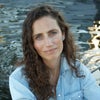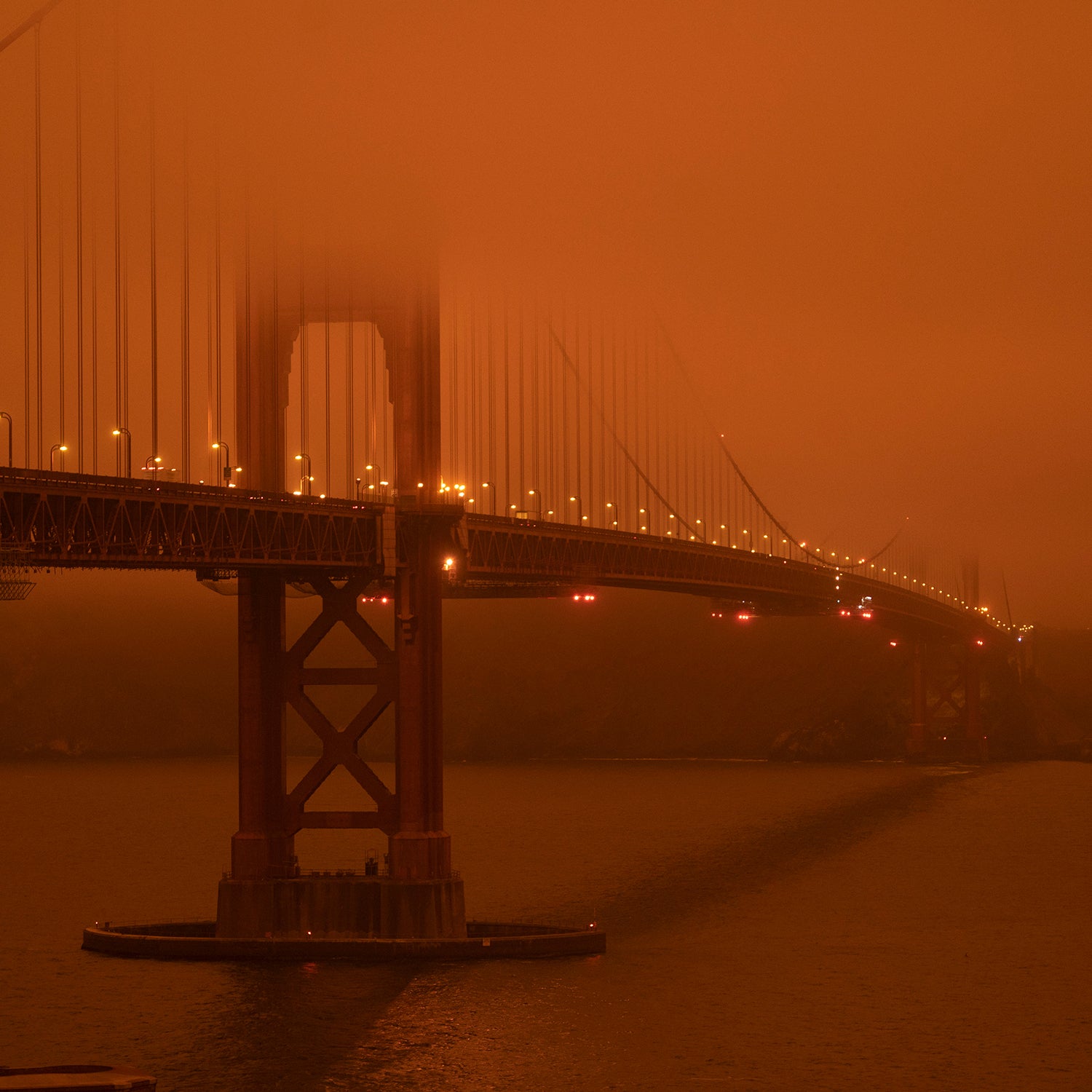I keep thinking it can’t get any harder to breathe, and somehow it still does.
This week on the West Coast feels like something out of a dystopian novel. Old-growth forests and entire towns are burned over. Mill City, Oregon, is ash, as is Malden, Washington, and the fires are still growing and moving. The winds are high, and the relative humidity is low. This morning it took way too long for the sun to come up at my home in Seattle.
I have lived somewhere close to the edge of an area ravaged by wildfire��for nearly��all of my adult life, and yet��the��violence and speed of such occurrences��still shock me every summer. It’s easy to misremember last year’s blazes, or, like so many point-source environmental disasters, to avoid thinking about it until it’s once again in your face. To ignore the threat until it ignites.
This��feels like a too obvious reckoning, the exact way we were told , flipping into disaster so fast.
If you are not under that currently stretches the length of the West Coast, the photos probably seem surreal, and the high-speed destruction might be hard to fathom. Maybe if you’re not directly impacted by the burns, it can seem like the late-summer��news out of California is always about fire,��and that this year isn’t much different. But it is.
The 2020��fire season is unprecedented, and it’s just getting started. California has already broken its record for the total number of acres burned��in the state, and according to the��, six of the twenty��largest wildfires in the state’s history have occurred since January 1.��Oregon governor Kate Brown recently said that this cycle of fire could cause the greatest loss of human life and property from wildfires ever seen in her state.
On Wednesday night, as the sky here in Seattle hung thick and gray-green with distant smoke, I sat balled up on the couch texting friends and family in Oregon, taking in the pictures they sent of��the eerie orange sky, trying to keep track as the fire nearest them��changed their evacuation plans from “get ready” to “go now.”
“Should they all just come here?” my boyfriend asked frantically at one point, looking around our tiny apartment as the evacuation zone engulfed his brother’s house in Clackamas County and headed toward his parents’ place.
Should they? What are our options when we’re trying to pivot in the middle of panic? And even if they should come—even if they wanted to—it’s unclear whether��they actually could. Sections of many��major highways in the Northwest��have��been closed by fire at some point in the past week. Evacuees are , and hotels are clogged and crammed despite the still present threat of COVID-19. This year has felt like a battle to make smartish decisions in the face of unclear, very bad consequences.��I am constantly wondering if the tightness in my chest is panic or rage or virus or smoke.
That red-dotted highway map of traffic jams��feels like a climate metaphor, too, like we’re in a narrowing funnel of choice and our pathways are closing down. Like every summer we have fewer options and the consequences keep getting worse.
If you love forests or rangy grasslands, if you’re the kind of person who wants to be outside, you have to love fire, too, or at least understand that it’s natural��and appreciate how it keeps a landscape healthy. But that doesn’t mean this current level of destruction is normal or tenable or, most important, fully unavoidable.��These past few years of rampant, ��are a clear example of how human choices—and the way America is particularly bad at the�� environmental problems require—have��pushed the natural functions of our��lands into disaster.
All of these��fires��come from a legacy of , failures of and a . It’s the rate in which��people are , thereby putting themselves in the line of risk��and having��to prevent��their property from��progressing through natural fire cycles. It’s a negligence of indigenous . It’s also stupid human decisions, like and flaming cigarette butts and , which ignite flames.
But more broadly, it’s the result of how fossil-fuel-driven climate change has led to fire conditions, and the way decades of passing the buck is now coming around.
��and our continuous use of fossil fuels, summer days in California��are more than a degree hotter than the historical average, Oregon is in the midst of its , and much of the rest of the West is and drought, too, drying out forests.
Like any kind of climate-related change, it’s too late to stop the train of warming that’s already moving forward. Things will likely get worse—or at least stay just as bad—and it will probably require��. But it really depends on what we decide to do now about curbing fossil-fuel use to lessen��even more warming.
Whatever we do, one thing is certain: our climate-change future is here.


